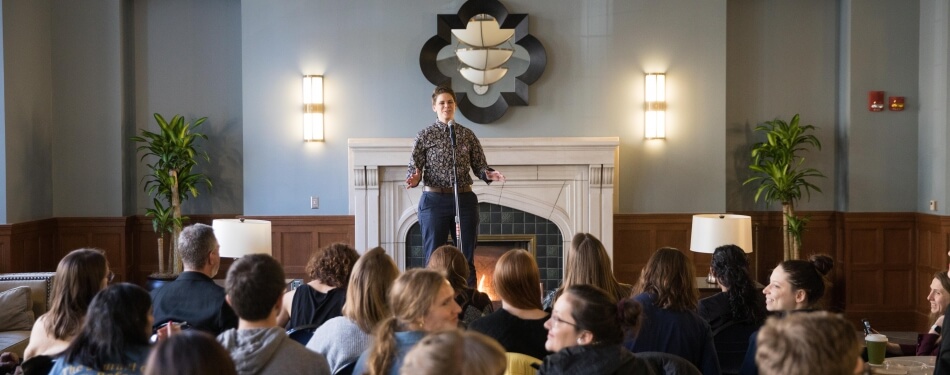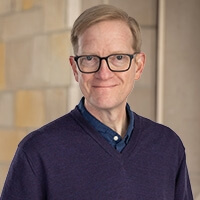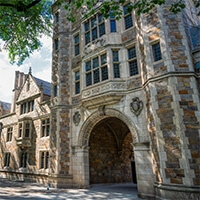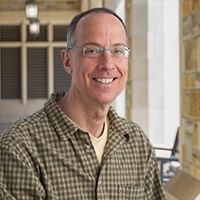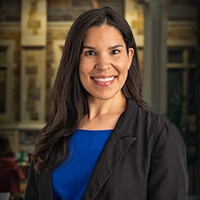When Lara Finkbeiner, Michigan Law’s public interest director, created “The Valiant” storytelling event, it was with the mindset that public interest students could gather as a community and celebrate their reasons for pursuing this work. Little did she know it would be the last time the Law School’s public interest students would gather together before the COVID-19 pandemic forced the nation to shelter in place.
For the students who participated—Hetali Lodaya, Meredith Reynolds, Alex Gilewicz, and Brenna Twohy—it made an already-special experience all the more meaningful because it was their last event as 3Ls.
“The COVID shutdown made The Valiant an unexpected and poignant end to my official law school involvement,” said Reynolds. “It was truly special for me to show myself how far I had come during these past three years in finding my voice and my path in the law. It also was special to have one of my last times on campus be a time when I could give of myself to the community that has given so much to me.”
“Hearing the other three women tell their stories was so special,” added Twohy. “We got to spend time together afterwards to talk about the experience, and having that time together, in retrospect, is especially valuable to me.”
Celebrating the public interest community, reaffirming students’ commitment to public service, and connecting them to the values that brought them to Law School is what Finkbeiner, ‘13, wanted to accomplish with The Valiant. Modeled after live events organized by The Moth, a nonprofit dedicated to the art of storytelling, Finkbeiner said The Valiant was an opportunity to give students practical experience in storytelling that will be useful no matter which public interest path they take.
“Storytelling, in particular, is such an important part of being a good lawyer,” Finkbeiner said. “Sharing your client’s narrative in a compelling way makes a huge difference when you’re doing advocacy work, as is being able to tell stories to educate people about an issue. It’s a critical component of public interest work.”
Finkbeiner partnered with Michael Steinberg, a Michigan Law professor from practice and former legal director of the American Civil Liberties Union of Michigan, who also participated in the event. Steinberg tells stories about his cases at Moth Mainstage performances across the country and has his own Moth coach, who volunteered to mentor the four student participants in the weeks leading up to their performance in early March.
Each student had five to eight minutes to tell their stories, without the benefit of notes. Gilewicz—a singer and musician who hasn’t performed in years—said the experience was nerve-racking but worth it. “I started to realize what an important event it was for the public interest community to think about what brought other people here, because we all have a reason we came to law school,” she said. “To hear other people tell their stories, to share mine, and to hopefully encourage other people to do so in the future definitely made it worth it.”
Lodaya agreed, and offered another takeaway: “No matter how well you think you know someone, there always will be something to learn about them. I think for so many of us doing public interest work, there are reasons that it matters to us. Listening to each other’s stories is a really important part of us building those relationships where we can support each other and help each other do the work that we’re trying to do.”

